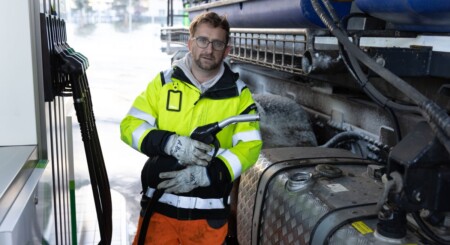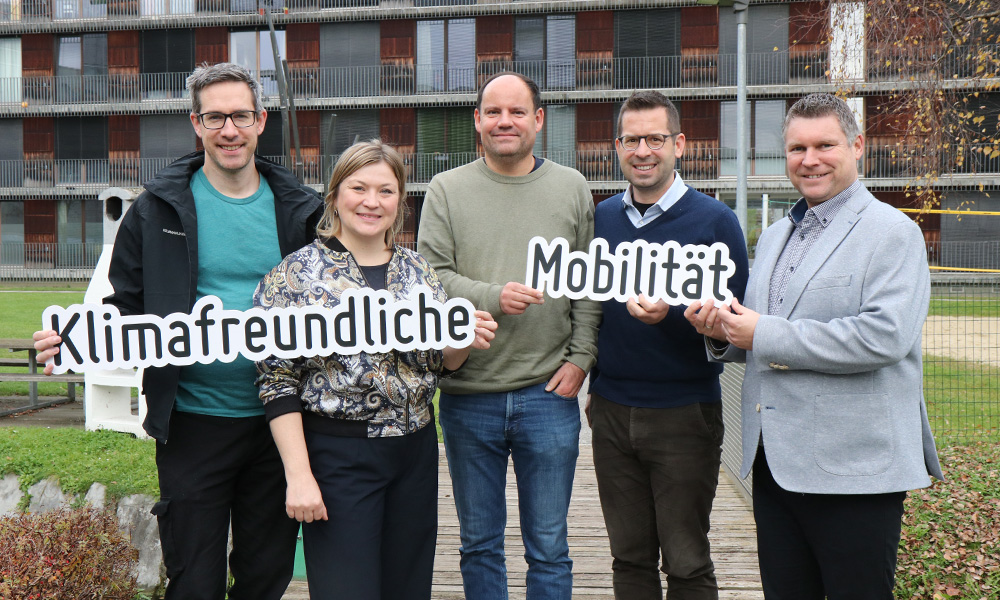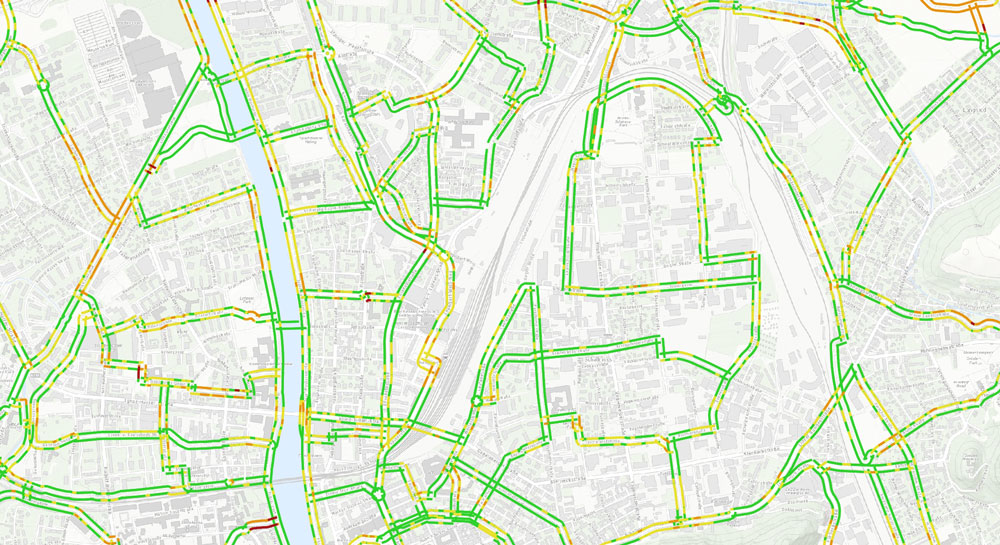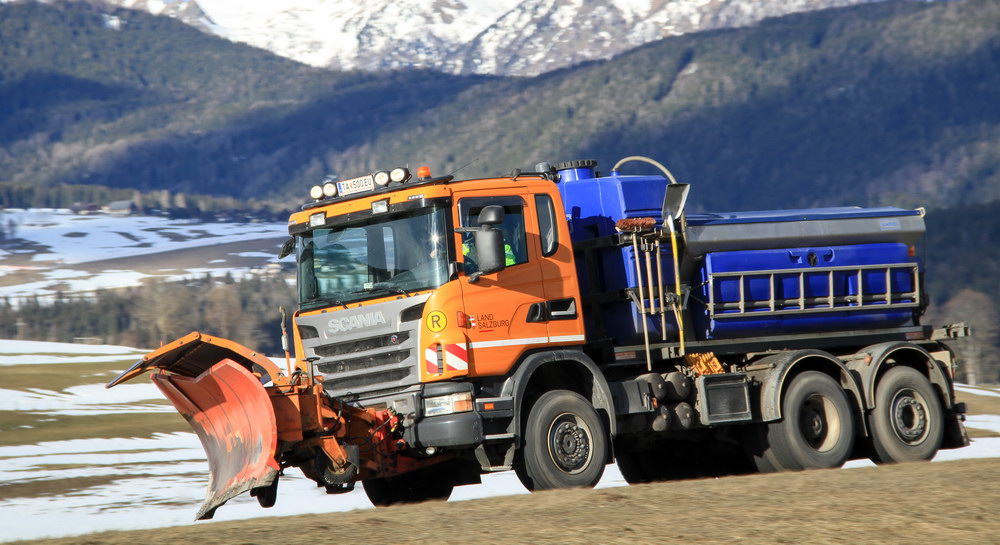
Winter service tests more climate-neutral fuel
Salzburg wants to be the first province in Austria to create a climate-neutral vehicle fleet. To this end, the winter service of the Lungau road maintenance department is filling up with CO2-neutral HVO fuel this winter. Salzburg Research is providing scientific support for this test run.
According to EU regulations, public institutions must convert their vehicle fleets to low-emission operation. As a first step towards a more climate-neutral vehicle fleet, Leikermoser Energiehandel GmbH, in cooperation with the provincial road administration of the province of Salzburg, is conducting a test run with HVO100 fuel in winter service in winter 2022/23. From the beginning of December 2022 until the end of March 2023, a gritting and clearing vehicle of the Lungau road maintenance department will be fuelled with this alternative fuel.
HVOs (Hydotreated Vegetable Oils) are synthetically produced fuels exclusively from renewable raw materials – mainly from food residues such as old frying oil. The fuel has the same effect as conventional diesel, but emits considerably fewer pollutants: CO2 emissions are said to be reduced by up to 94 percent, particulate matter emissions by up to 33 percent and carbon monoxide by up to 24 percent. Only the carbon dioxide that was already bound in the raw material is released into the atmosphere. Despite three percent higher consumption values, it is expected to save 45 tonnes of carbon dioxide this winter.


Mission: Scientific monitoring of the pilot project
Salzburg Research, in cooperation with Graz University of Technology and Consilio Information Management GmbH, was commissioned to provide scientific support for this pilot test. The aim is to ensure that HVO fuel is suitable for the requirements of weather service on federal and provincial roads. Among other things, fuel consumption, pollutant emissions and engine performance will be investigated when operating with the HVO100 fuel.
Within the scope of this test, a gritting and clearing vehicle of the Lungau road maintenance department is operated with the fuel. An identical vehicle from the Pongau road maintenance department, which drives similar route profiles with fossil fuel, serves as a comparison vehicle. Both trucks were equipped with sensors.
The FlowMotion software system from Salzburg Research is used, in which the data is collected, checked for quality and evaluated. The movement and operating data of the vehicles are refined by Salzburg Research by referencing each individual journey to road graphs and determining gradients, speeds, acceleration and stretches of road with winter services. On the basis of this data, TU Graz is investigating fuel consumption, power development, exhaust behaviour and other parameters in a comparison between HVO and the standard fuel. In addition, the pollutant emissions of the HVO test vehicle and the comparison vehicle with diesel fuel will be examined with a portable measuring device.
The companies involved
The client is Leikermoser Energiehandel GmbH. Salzburg Research brings many years of experience in the recording, storage, processing and analysis of vehicle data (e.g. FCD model region Salzburg, Austria-wide processing of vehicle data as part of the road data platform EVIS.AT). The research institute also has background knowledge of winter road maintenance and operational data collection. Questions on fuel consumption and fuel engine performance are answered by the Forschungsgesellschaft für Verbrennungskraftmaschinen und Thermodynamik mbH (FVT) at Graz University of Technology. Consilio Information Management GmbH contributes data from the telematics-supported operational data collection of the winter road maintenance service for the province of Salzburg.








